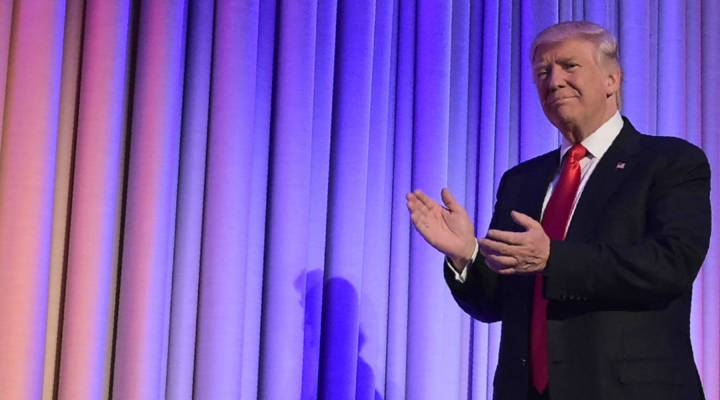
Two former presidential advisers give their take on Trump’s economic plans
Two former presidential advisers give their take on Trump’s economic plans

Throughout his campaign, Trump has outlined some ambitious plans to overhaul the economy. He’s talked about investing $1 trillion in infrastructure, repealing Obamacare and getting rid of the Dodd-Frank financial reform act.
But will he actually tackle these issues, and can he gain support from his party and across the political aisle?
Austan Goolsbee, former chair of the President Barack Obama’s Council of Economic Advisers, said he thinks gathering political will to enact major new legislation will be difficult to achieve.
“You kind of see on the map that it’s two different countries,” Goolsbee said. “In a political environment like that, [it] strikes me as relatively hard to build a national consensus for anything.”
As for whether his plans can spur growth, Goolsbee said he thinks Trump’s stance against trade and immigration will only damage the economy.
“My own belief is that building walls to keep the rest of the world’s stuff and people and ideas out doesn’t make you rich. It makes you poor,” Goolsbee said. “It’s been tried hundreds of times all around the globe, and that doesn’t make you rich.”
Glenn Hubbard, who served as chair of President George W. Bush’s Council of Economic Advisers, has a different take on whether Trump’s economic policies will be successful. Though he thinks we will experience short-term market volatility, he argues we could see growth in the long term.
“I think we ought to all take a deep breath and imagine the possibilities here, particularly from tax and regulatory reform,” Hubbard said.
As for the economic underpinnings of the vote, Felicia Wong, president of the non-partisan Roosevelt Institute, ties voter sentiment to 2008.
“The financial crisis never really ended for millions of Americans, tens of millions of Americans in key states,” Wong said. “They want to change what they have been living through.”
There’s a lot happening in the world. Through it all, Marketplace is here for you.
You rely on Marketplace to break down the world’s events and tell you how it affects you in a fact-based, approachable way. We rely on your financial support to keep making that possible.
Your donation today powers the independent journalism that you rely on. For just $5/month, you can help sustain Marketplace so we can keep reporting on the things that matter to you.


















